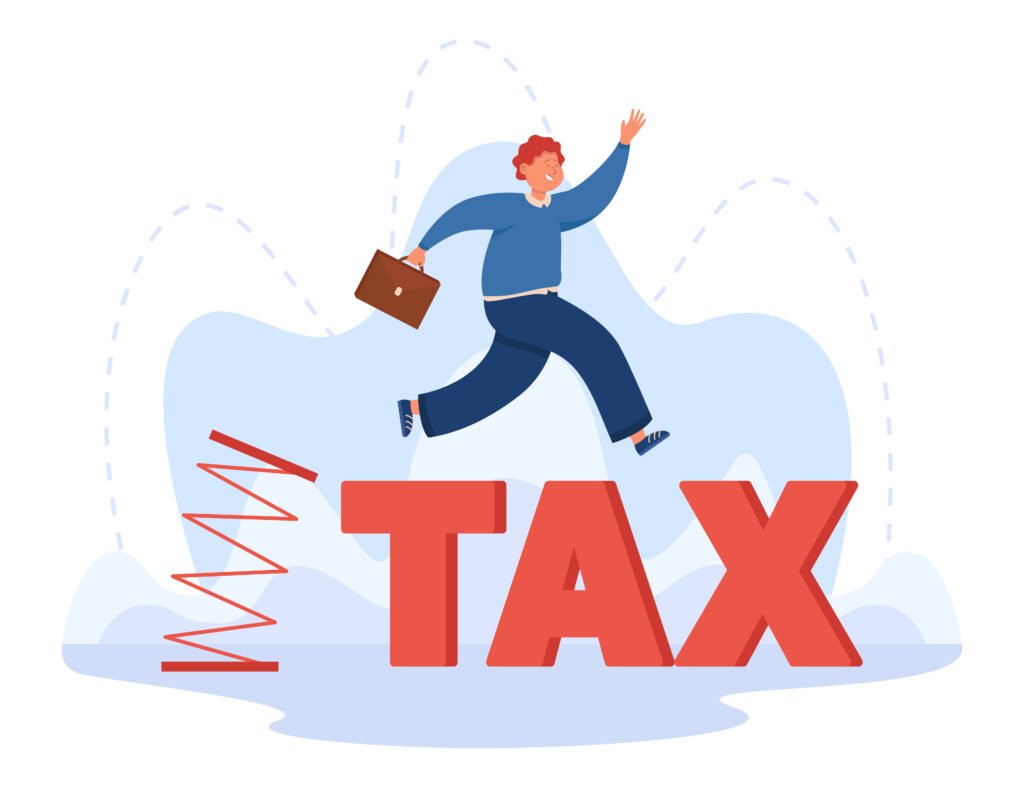Return Filing | FBR Sales Tax (GST)
Return Filing With FBR
Filing your sales tax return with the Federal Board of Revenue (FBR) is a crucial aspect of maintaining compliance with Goods and Services Tax (GST) regulations in Pakistan. Here’s a comprehensive guide to navigating the process seamlessly.
Understanding FBR Sales Tax
Navigating the landscape of sales tax under the purview of the Federal Board of Revenue (FBR) in Pakistan requires a nuanced understanding of its intricacies. Here’s a comprehensive overview to shed light on the fundamental aspects of FBR sales tax.
Purpose and Scope
The primary objective of FBR sales tax is twofold: to generate revenue for the government and to regulate economic activities by taxing the supply of goods and services. This tax applies to a wide range of transactions across various sectors, contributing significantly to the national exchequer.
Taxable Transactions
Under FBR regulations, sales tax is levied on the supply of goods and services deemed taxable. This includes both tangible goods, such as manufactured products and commodities, and intangible services, ranging from consultancy to telecommunications.
Tax Rates and Exemptions
FBR sales tax rates vary depending on the nature of the goods or services involved, with standard rates typically ranging from 14% to 17%. However, certain items may be subject to specific rates or exemptions based on government policies aimed at promoting certain industries or providing relief to consumers.
Input Tax Mechanism
One unique aspect of FBR sales tax is the input tax mechanism, which allows businesses to claim credit for the sales tax paid on inputs used in their operations. This mechanism prevents tax cascading and ensures that tax is levied only on the value added at each stage of production or distribution.
Registration Requirements
Businesses engaged in taxable activities must register for sales tax with the FBR. Registration entails providing relevant information about the business, including its structure, activities, and anticipated turnover. Failure to register or comply with registration requirements can result in penalties and legal consequences.

Compliance and Enforcement
Maintaining compliance with FBR sales tax regulations is crucial for businesses to avoid penalties and legal liabilities. The FBR employs various enforcement mechanisms, including audits and inspections, to ensure adherence to tax laws and deter tax evasion.
Purpose and Scope of FBR Sales Tax Return
The purpose and scope of FBR sales taxation are pivotal aspects of fiscal policy, directly influencing economic dynamics and governmental revenue. FBR sales tax serves a dual function, strategically designed to generate income for the government while also regulating economic activities to ensure stability and fairness within the marketplace.
Purpose Of FBR Sales Tax Return
The primary objective of FBR sales taxation is to serve as a significant revenue generator for the government. Revenue collected from sales taxes constitutes a substantial portion of the national budget, funding crucial public services, infrastructure projects, and social welfare programs. By levying taxes on the sale of goods and services, the government ensures a steady stream of income to sustain its operations and meet the needs of its citizens.
Scope Of FBR Sales Tax Return
The scope of FBR sales taxation is extensive, encompassing a broad range of transactions across various sectors of the economy. Virtually all goods and services exchanged within the country are subject to sales tax, ensuring a comprehensive coverage of economic activity.
Taxable Transactions of FBR Sales Tax Return
Understanding the taxable transactions outlined in the FBR sales tax return is essential for businesses to comply with tax regulations and fulfill their fiscal obligations. The FBR sales tax return encompasses a variety of transactions across different sectors, each subject to specific tax rates and reporting requirements.
1. Sale of Goods:
One of the primary taxable transactions covered in the FBR sales tax return is the sale of goods. This includes tangible products exchanged for consideration, whether through retail, wholesale, or manufacturing channels. Businesses are required to report the sale of goods accurately, applying the applicable sales tax rate and documenting the transaction details to ensure compliance with tax laws.
2. Provision of Services:
In addition to the sale of goods, the provision of services is also subject to FBR sales tax. This category encompasses a wide range of service-based transactions, including professional services, consulting, maintenance, and other service-oriented activities. Service providers must collect and remit sales tax on the services rendered, adhering to the prescribed tax rates and reporting guidelines.
3. Importation of Goods:
Imported goods are another taxable transaction captured in the FBR sales tax return. Businesses engaged in importing goods into the country are required to pay sales tax on the imported goods at the time of clearance through customs. The sales tax is calculated based on the customs value of the imported goods and must be reported accurately in the sales tax return to ensure compliance with import tax regulations.
4. Exportation of Goods:
While exports are generally exempt from FBR sales tax, certain transactions involving the exportation of goods may still be subject to taxation. For example, goods sold to local customers for export processing or goods supplied to duty-free zones within the country may be subject to sales tax. Businesses engaged in export-related transactions must carefully assess their tax liabilities and report any taxable exports in the FBR sales tax return.
5. Special Transactions:
Additionally, the FBR sales tax return may include provisions for reporting special transactions or unique circumstances not covered by standard taxable transactions. This could include transactions involving exempt organizations, special tax incentives, or other regulatory considerations that require specific reporting treatment.


Tax Rates and Exemptions
FBR sales tax rates vary depending on the nature of the goods or services involved, with standard rates typically ranging from 14% to 17%. However, certain items may be subject to specific rates or exemptions based on government policies aimed at promoting certain industries or providing relief to consumers.
Input Tax Mechanism
One unique aspect of FBR sales tax is the input tax mechanism, which allows businesses to claim credit for the sales tax paid on inputs used in their operations. This mechanism prevents tax cascading and ensures that tax is levied only on the value added at each stage of production or distribution.
Registration Requirements
Businesses engaged in taxable activities must register for sales tax with the FBR. Registration entails providing relevant information about the business, including its structure, activities, and anticipated turnover. Failure to register or comply with registration requirements can result in penalties and legal consequences.
Contact Us For Income Tax
Compliance and Enforcement
Maintaining compliance with FBR sales tax regulations is crucial for businesses to avoid penalties and legal liabilities. The FBR employs various enforcement mechanisms, including audits and inspections, to ensure adherence to tax laws and deter tax evasion.
Contact Us for Personalized Assistance:
Feel free to contact us for personalized assistance and expert advice on your FBR tax return concerns. Our team is here to alleviate your tax burdens, offering proactive solutions and strategic insights that align with your financial goals.
24/7 Customer Support
If you want to know anything about our services, you can contact us through Phone, WhatsApp.
